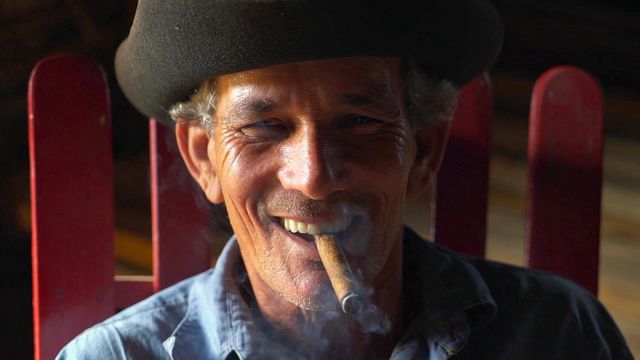NC farmers explore trade with Cuban counterparts
In late 2014, after months of secret meetings and negotiations, U.S. President Barack Obama and Cuban President Raul Castro announced an agreement to restore diplomatic relations between their two counties.
Many Americans now see a new market in Cuba for their products. With its rich soil and tropical weather, Cuba offers an ideal climate for agriculture.
The town of Vinales is primarily known for its tobacco. Oreste Diaz comes from a long line of tobacco farmers, and his farm produces about 35,000 pounds of tobacco each year.
“This is the best region for tobacco in Cuba and in the world,” Diaz said. “He who doesn’t like the smell of a Cuban tobacco leaf doesn’t like anything.”
Most Cuban farmers are part of a state-owned cooperative system. Farmers are obligated to sell most of their tobacco to the government and typically keep only about 10 percent for personal use.
Currently, about 60 percent of Cuba’s land is cultivated. Some see this as an agricultural opportunity.
A North Carolina agriculture delegation traveled to Cuba in September to begin exploring new trade opportunities. Among them was North Carolina Farm Bureau President Larry Wooten and Assistant to the President Peter Daniel.
Daniel first traveled to Cuba in 2000, when it became legal in the U.S. to sell agriculture products to Cuba for cash.
“The infrastructure has crumbled since then, but I’m seeing the restaurants and the privately owned small businesses and entrepreneurs, I’m seeing those developed, and they are doing a really good job,” Daniel said.
The delegation understands that the tours and the meetings alone will not be enough to improve trade relations. They say it will take an actual connection and understanding of the Cuban people.
“They are very interested in forming a new type of relationship, which I find magnificent,” said Armando Nova, an agriculture economist at the University of Havana.
Currently, North Carolina exports apples and poultry to Cuba, but the group wants to know what else could be mutually beneficial.
“(Cuba) has had relationships for 50 years with counties like Russia, Brazil, China, Canada and the European Union, and they are not just going to turn away those relationships because the United States comes calling,” U.S. Agriculture Coalition for Cuba Vice Chairman Paul Johnson said.
According to Johnson, something else must change if the U.S. wants to compete for more trade opportunities with Cuba.
“Other counties are offering credit, and we can’t because of the restrictions,” Johnson said, adding that relationships must be mended and the U.S. embargo must be abolished.
The embargo, put in place by President John F. Kennedy in 1962, halted trade with Cuba as an effort to combat communism.
The embargo’s restrictions were strengthened in 1996 in what is known as the Helms-Burton Act, sponsored in part by former U.S. Sen. Jesse Helms of North Carolina.
It reinforces the embargo’s original restrictions and calls for an international embargo in place by punishing countries, even U.S. allies, that are trading with Cuba.
“The delegations are important because it gives us a chance to bring in different states, farmers, farm groups, agribusiness … to have exchanges on a state level and farmer to farmer,” Johnson said.
As he sees it, it is an opportunity to put people before politics. Something farmers are known to do.











